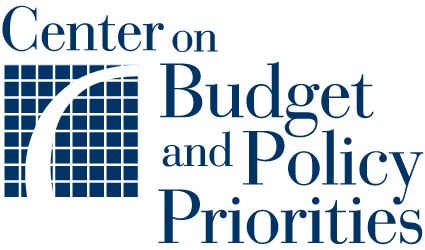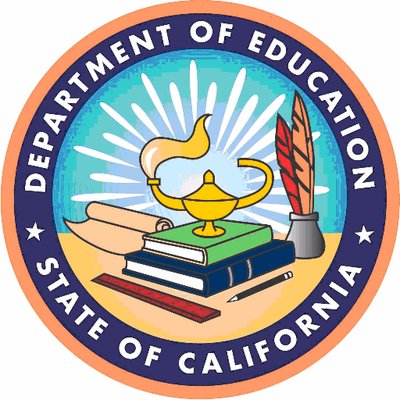|
"Children Learning, Parents Earning, Communities Growing"
|
|
|
 |
|
Issue #3 January 21, 2019
|
Happening This Week -
Child Care Advocacy Day!
This is a day advocates will join together, in a shared voice, to advocate for child care and early education.
January 23, 2019
9:30am-4:00pm
California Endowment Building - Downtown
Sacramento
In order for us to be successful securing more services for families and children, we must work together, collect the data, and educate our elected officials about the past successes we have had, but of huge unmet need that still must be addressed.
In the morning we will hear from experts about what Governor-elect has proposed in his January budget. We then will have time to ask questions and discuss our collective strategy for meeting with legislators in the afternoon. The legislative meeting times will be set up and you simply need to share with us who you would like to meet with, i.e., your elected representatives. It is encouraged that if you have district specific information relevant to a specific legislator, bring it.
Finally, in the afternoon, we have scheduled for legislators and those interested a showing of the child care documentary
No Small Matter. This showing is the first major theatrical documentary to kick start the public conversation about early care and education.
Planned Schedule of Events
CAPPA staff will be scheduling the legislative visits. You will receive a schedule, room assignments, and legislative advocacy packet when you check in. If you have a specific member you would like to visit,
click here.
9:30am: Check in at the California Endowment- 1414 K Street, Suite 500, Sacramento, CA 95814
9:45am-12:00pm: Opening remarks and budget panel discussions
12:00pm-12:30pm: Legislative "prep-talk" and lunch
1:00pm-4:00pm: Legislative Visits
1:30pm: Screening in the State Capitol of the documentary
No Small Matter
Interested in Sponsoring this Event?
|
|
 |
|
Child Care Links: Making holidays brighter for those it serves
'We work every day ... to ensure that the youngest, most vulnerable residents in our county get the care and support they need'
Child Care Links, a private nonprofit agency that has served children in the Tri-Valley for more than 40 years, has now become a leading provider of a wide range of services and programs from providing food, clothing and baby diapers to needy families as well as helping them find child care. To learn more about the amazing work being done by Child Care Links,
read the entire article.
Do you have success news to share with us?! We love to hear what our members are up to and where they're going! Submit your accomplishment(s) big OR small by emailing us!
|
|
|
CAPPA's
2018-19 Board of Directors
|
|
Rick Richardson
Child Development Associates
Karen Marlatt
Valley Oak Children's Services
Beth Chiaro
Child Care Resource Center
LaVera Smith
Supportive Services Fresno
Martin Castro
Mexican American Opportunity Foundation
Jeffrey Moreira
Crystal Stairs, Inc.
Public Policy Co-Chair
Phillip Warner
Children's Council San Francisco
Tina Barna
Choices for Children
Abby Shull
YMCA Childcare Resource Service
Leslie Reece
Family Resource & Referral of San Joaquin County
Jeanne Fridolfs
Napa County Office of Education
Mike Michelon
Siskiyou Child Care Council
Marco Jimenez
Central Valley Children's Services Network
San Mateo 4Cs
Michelle Graham
Children's Resource & Referral of Santa Barbara County
Joie Owen
Glenn County Office of Education
Denyne Micheletti Colburn
CAPPA CEO
|
|
|
ELCD/CDE, DSS & CCLD Updates
|
|
The California Department of Social Services (CDSS) has amended regulations pertaining to CalWORKs, within the Eligibility and Assistance Standards Manual. The changes are detailed in
CDSS Manual Letter No. EAS-18-05
December 5, 2018
November 30, 2018
Electronic banking option for provider reimbursement in Alternative Payment Programs (APPs)
November 21, 2018
November 8, 2018
Fiscal Year 2018-19 Request for Applications for General Child Care and Development Program Expansion Funds
|
|
|
Is Your Organization Hiring?
Post your job announcement here for thousands to see!
There is no charge for CAPPA members.
Non-members will be charged a fee of $75.
Please
email us
your posting!
International Institute of Los Angeles
Children's Council San Francisco
Growing Place
MCT Technology
Child Care Resource Center
Community Action Partnership of San Luis Obispo County, Inc.
Pomona Unified School District- Child Development
Children's Council San Francisco
Child Care Coordinating Council, Inc. of San Mateo County
|
The CAPPA Board has made it a priority to support our field with a coordinated calendar to note upcoming statewide conferences, federal conferences of relevance, CDE and DSS stakeholder meetings and legislative and budget deadlines and hearings.
NOTE: If you would like to share your newsletter or items of interest with our field via the Monday morning e-Newsletter, then please
email us
a link. Please make sure that you have a link included to an online version or viewing.
|
|
|
Become a Monday
Morning
Update
Partner!
|
|

Our Monday Morning Update supports our Early Learning & Child Care field with timely information about what is going on in California and nationally; as well as dates to be aware and upcoming events.
Our weekly (50 times per year) Monday morning distribution is to more than 4,000 federal and state local agencies, resource and referrals, contractors, legislators and their staffs', centers, parents, providers, state departments and advocates.
To help support the continuation of this resource and or advertise in the Monday Morning Update, click
HERE.
You can also make a donation to CAPPA and CAPPA Children's Foundation
The Children's Foundation is a non-profit organization (501(c)3), Taxpayer Identification Number is
03-0521444. Your generous donation is tax deductible.
|
|
 |
|
 |
Legislative
To date, 422 legislative bills have been introduced; 262 Assembly and 160 Senate.
Click here to see all of the legislation identified of interest to our field. Below are a couple highlights:
AB 6 (Reyes) Early childhood education: Office of Early Childhood Education.
AB 67 (Rivas) Individuals or families who are homeless or at risk of homelessness: definition.
AB 123 (McCarty) Early childhood education: state preschool program: transitional kindergarten: access: standards.
AB 167 (Rubio) Childcare and development services: infants and toddlers.
AB 220 (Bonta) Political Reform Act of 1974: campaign funds: childcare costs.
|
January Budget Proposal Released
On January 10, 2019 Governor Newsom released his 2019-20 January Budget Proposal. Overall, the proposal identifies many areas for investments for our child care and our earliest learners, poverty, home visiting, Earned Income Tax Credits (EITCs), home visiting and developmental screenings and paid family leave. This proposal is a great starting point for the start of our budget negotiations.
Click here to download budget materials released to date.
Below are upcoming hearings:
- January 17, 2019 - SEN Budget & Fiscal Review Hearing @ 10:00. Click here for the agenda.
- January 29, 2019 - ASM Budget Committee @ 10:00 am Overview of the Governor's 2019 Budget
- Budget Position Continues to Be Positive. In our November Fiscal Outlook publication, we noted that the budget is in remarkably good shape-a comment based in large part on the significant discretionary resources we estimated were available. The Governor's budget proposal reflects a budget situation that is even better than our estimates. Largely as a result of lower-than-expected spending in health and human services programs, we estimate the administration had nearly $20.6 billion in available discretionary resources to allocate. That said, recent financial market volatility poses some downside risk for revenues.
- Governor's Budget Prioritizes Debt Repayments and One-Time Spending. The figure shows how the Governor proposes allocating the nearly $20.6 billion in available discretionary resources. The Governor proposes spending nearly half of these resources, $9.7 billion, to pay down certain state liabilities, including unfunded retirement liabilities and budgetary debts. The Governor allocates $5.1 billion-25 percent-to one-time or temporary programmatic spending. The Governor allocates $3 billion-15 percent-to discretionary reserves. Although this represents a smaller share of resources than other recent budgets have devoted to reserves, the Governor's decision to use a significant share of resources to pay down state debts is prudent
EDUCATION
- Expanding Preschool Beginning With Low-Income Students Is a Reasonable, Needs-Based Approach. The budget includes $125 million (non-Proposition 98 General Fund) ongoing to provide 10,000 full-day preschool slots for children from low-income families. The funding is to be the first of three augmentations, with the intent to provide a total of 30,000 additional slots to serve all low-income four-year olds by 2021-22. These slots would be on top of the almost 9,000 full-day slots the state added over the past three years. Extending preschool to all children from low-income families is consistent with considerable research that has concluded the benefits of preschool are greatest for these children. Even though we believe the Governor's overall preschool expansion is reasonable, the Legislature likely will want to consider the implementation details. Timing; outreach to families; and any changes to program eligibility, contracting, and accountability will be particularly important issues to consider.
- Other Early Education Proposals Largely Placeholders, Offer Legislature Opportunity to Set Its Priorities. The Governor's budget also includes $750 million (non-Proposition 98 General Fund) one time to create more full-day kindergarten programs. The funds are primarily intended for constructing new or retrofitting existing school facilities needed to operate the longer-day programs. Additionally, the Governor's budget includes a total of $500 million for improvements to early education ($245 million for facilities, $245 million for the child care workforce, and $10 million for a comprehensive plan to improve access and quality). At this time, the administration has few details on how these funding amounts would be allocated or used. Given the large dollar amounts at stake, we encourage the Legislature to think about its priorities across the state budget. If the Legislature were to decide to use one-time funds in the early education area, it could continue to focus on facility and/or workforce issues, as these have long been areas of concern for the field. The Legislature, however, might consider more targeted initiatives linked with specific goals. For example, it could link any one-time workforce funding to helping with a transition to a new child care reimbursement rate system and/or higher minimum program standards.
|
FEDERAL
As a result, millions of low-income households - including millions of poor children, parents, elderly people, and people with disabilities - could have their basic food assistance cut back substantially next month and then virtually eliminated altogether in March if the shutdown continues.
The President stated several days ago that the shutdown could go on for months or even years. 
What will happen in coming weeks with respect to SNAP thus is cause for very substantial concern.
|
|
FY 2018-19 Greenbook posted

The fiscal year (FY) 2018-19 Greenbook has been posted to the Child Development fiscal information web page. The Greenbook is a manual that aids child development contractors in their attendance and fiscal reporting and explains reimbursement procedures and the role of the Child Development and Nutrition Fiscal Services (CDNFS) unit within the Fiscal and Administrative Services Division (FASD).
The updated Greenbook is available on the Child Development Web Page
Here.
The most significant update to the 2018-19 Greenbook is the addition of reporting guidance for Alternative Payment programs. To distinguish between Center-based and Alternative Payment reporting procedures, a footnote has been added to the bottom of each page and indicates "Center Based Programs", "Alternative Payment Programs", or "All Contract Types". Note that "Reporting for Center Based Programs" and "Reporting for Alternative Payment Programs" have separate sections in the Greenbook beginning on pages 36 and 49, respectively, and all other sections are combined for each contract type with an indication of the related programs type in the footer. For example, the section to discuss reimbursements begins on page 59 and ends on page 76. This section speaks to each program type and where the topic relates only to one program type, the program type will be indicated in the footnote.
Additionally, a listing of important changes is included at the beginning of the Greenbook each year. Please pay special attention to these changes and contact your assigned fiscal analyst with questions. The fiscal analyst directory can be found at:
|
|
CDE Releases 12-Month Eligibility and CalWORKs Regulations
CDE has released a regulatory package on 12-month eligibility and CalWORKs. The 45-day comment period starts today and ends on February 11, 2019.
|

Explore a new series of resources-"Spotlights From the Field." The series highlights innovative strategies to help implement Early Head Start - Child Care (EHS-CC) Partnerships. Find guidance on how grantees from across the country developed systems and practices to support their EHS-CC Partnership grant. The topics in this series include workforce and professional development, comprehensive services, and continuity of care. Also, read about implementing fiscal and ongoing monitoring and building supply and access to quality care.
Target Audience -
The intended audience is:
- EHS-CC Partnership grantees
- Child care partners
- Training and technical assistance providers
- State administrators and staff members
- Head Start collaboration directors.
Access the Resources
|
Preschool Development Birth Through Five Initial Grant Awards

The Office of Child Car
e (OCC) would like to congratulate the 45
states and territories who received a Preschool Development Birth Through Five (PDG B-5) Initial Grant Award at the end of December.
AWARDED :
|
California Department of Education
|
$10,620,000
|
The PDG B-5 grants, which differ significantly from the previous Preschool Development Grants, are designed to fund states
and territories to conduct a comprehensive statewide birth through five needs assessme
nt, followed by indepth strategic planning, while enhancing parent
al choice and expanding the current mixed
-delivery system consisting of a wide range of provider types and settings, including child care centers and home-based child care providers, Head Start and Early Head Start
programs, state prekindergarte
n (preK) programs, and home visiting service providers across the public, private
, and faith-based sectors.
Specifically, PDG B-5 grants will support state
s and territories to do the following:
- Develop, update, or implement a strategic plan-based on what is learned from their thorough, statewide B-5 needs assessment-that facilitates collaboration and coordination among existing programs of early childhood care and education within a statewide mixed-delivery system to prepare low-income and disadvantaged infants, toddlers, and young children to enter kindergarten.
- More efficiently use existing federal, state, local, and nongovernmental resources to align and strengthen the delivery of existing programs; coordinate delivery models and funding streams within the state's or territory's mixed-delivery system; and develop recommendations to better use existing resources.
- Encourage partnerships among Head Startprograms, child care and preK providers, state and local governments, Indian tribes and tribal organizations, private entities (including faith- and community-based entities), and school systems.
- Improve transitions between early childhood and school systems.
- Maximize parental choice and knowledge about the state's and territory's mixed-delivery system of early childhood education program providers.
States and territories were invited to be innovative in planning, designing, enhancing, and evaluating their early childhood care and education mixed
-
delivery systems. They were also strongly encouraged to engage and develop their application jointly with a full range of early childhood stakeholders, including partners at the local community level and parents, to engage in system design and development that best meets the needs of families and their young children, particularly low-income and disadvantaged children.
Grant awards range between $538,000 and $10,620,000, depending on state and territory proposed plans. The grant performance period will run from December 31, 2018, through December 30, 2019. States and territories that receive this grant award will also be given the opportunity to apply for renewal grants prior to the end of 2019.
Questions about these PDG B-5 awards should be directed to Richard Gonzales at [email protected].
|
|
|
 |
|
|
 |
|